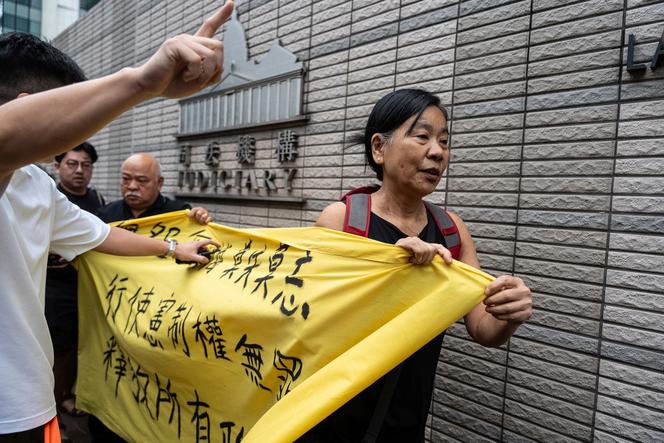


A Hong Kong court found 14 people guilty of subversion Thursday, May 30, at the start of a verdict hearing in the city's biggest case against the pro-democracy bloc since China imposed a national security law to crush dissent.
Beijing imposed a national security law on Hong Kong in 2020 after huge and sometimes violent pro-democracy protests brought the finance hub to a standstill. Authorities then charged 47 opposition figures from across the political spectrum with "conspiracy to subversion," saying their political activities were aimed at bringing down the government.
Thirty-one pleaded guilty, hoping for lenient sentences. Sixteen defendants had contested the charges. The 16 receiving verdicts included veteran pro-democracy ex-lawmakers Ray Chan and "Long Hair" Leung Kwok-hung and former journalist Gywneth Ho.
On Thursday, Judge Andrew Chan named the 14 defendants found guilty of the charge at the beginning of the hearing. "We are not going to read out the whole reason for verdict," Judge Chan said, adding: "That's all I wish to say at this juncture." The trial was held without a jury and the judges were chosen from a pool of jurists handpicked by Hong Kong's leader. Those found guilty are expected to be sentenced this year. Most defendants have been kept behind bars since they were first brought to court in March 2021.
Thursday's verdicts would show whether Hong Kong considers non-violent political participation a crime, according to Eric Lai, a research fellow at Georgetown University's Center for Asian Law. The defendants are "significant leading figures in Hong Kong's opposition movement," declared Lai, calling it "a trial of the pro-democracy movement of Hong Kong".
Prosecutors said the 47 had conspired to subvert state power by holding unofficial primary polls, as part of their plan to coordinate an electoral takeover of the legislature. Once in power, they would use their majority to veto government budgets and force the city's leader to accede to five key demands raised by protesters in 2019, the court heard.
Defense lawyers argued Hong Kong's mini-Constitution had laid out mechanisms for such a plan and that the matter was "a purely political issue rather than a legal matter".
The United States and other Western nations have criticized China for cracking down on democracy in Hong Kong and curtailing freedoms promised when the former British colony was handed over to Chinese rule in 1997. In response to the 2021 arrests of the defendants, the United States had sanctioned six Chinese and Hong Kong officials.
